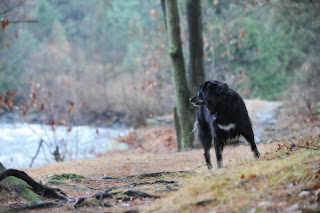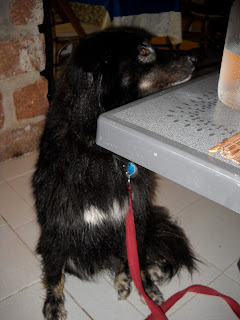Today I opened up one of my books by Thich Nhat Hanh and came to this quote:
This sends me to thoughts of the Amish, who can get rides in "English" people's cars, and eat fast food, but can't utilize this technology themselves.
And who will cook on the officially designated lazy day? Can I just tell my husband I'm observing a day of doing nothing and let him do it all--the dishes too?
Away from the North Country, I have friends who honor the tradition of Shabbat, the joyful feast. This occurs on Friday in the homes of observant Jews. They stay home that night, light candles, serve a hearty meal that includes the challah they baked earlier in the day or the night before (because the baking of bread is considered a "creative" act you refrain from on Shabbat), and they eat something that has been slow-cooked, or dishes made in advance, because cooking is also a creative act. (My friends in Pittsburgh grill a salmon outside, so people can get creative in avoiding creative acts, with delicious results.) There's a list of 39 activities you're supposed to refrain from, the kind of "creative" acts that change your environment, many of them agricultural, and you're not supposed to use electricity (although things are set to go on and off on timers; religious observance is always full of delightful loopholes) or drive or watch TV.
I imagine you are meant to refrain from using all electronic devices, which would mean that if you were observing Shabbat you would not be reading this post.
(For more information on Shabbat, read http://www.jewfaq.org/shabbat.htm.)
My own rule for myself on Sundays, as of this past semester, is that I can't grade papers. Creative work is fine, and even encouraged: writing, daydreaming, reading-for-writing, writing in my journal, and now, the blog. And certain physical chores like cooking, cleaning up, and doing laundry are fine too, because I enjoy that kind of labor. But anything that feels too much like the "work" or my salaried working life is out. To turn my Sundays from drudgery days to a relaxing day of joyous feasting meant reorganizing my entire week in a major way, but it was worth it. (If you're new to this corner, please see Day Four: How Sunday Became my Favorite Day of the Week.) And if possible, I try to make my afternoon walk with Zoe go longer, and slower. More akin to walking meditation than anything athletic.
I can never really do nothing, but I aspire to someday. I'm getting closer all the time. My favorite thing to do on a Sunday is to wear my pajamas for half the morning and bring the coffee or tea up to bed and read. Reading is definitely an activity Thich Nhat Hanh would place in the"doing something" category, but doing it in bed, in my pajamas, is the most relaxing thing to do in the whole world other than canoodling with my dog and scratching her ears.
For meditation, instead of going over to the studio, I might do guided meditation horizontally. Someone talks to me from a CD called Yoga Nidra and I just do what I'm told. I'm very obedient in this one way.
Sunday lunch usually takes a lot of preparation, but today we're going to a brunch to wish a friend a safe and lovely journey at sea.
Have a great, lazy day, gentle reader. If anyone has stories to share about doing nothing, and your favorite places to do nothing in, either at home or on location, please write in.
And what's for lunch?
Have a lazy day. Try to spend a day doing nothing; we call that a lazy day. Although for many of us who are used to running around from this to that. a lazy day is actually very hard work! It's not easy to just be. If you can be happy, relaxed, and smiling when you're not doing something, you're quite strong. Doing nothing brings about quality of being, which is very important. So doing nothing is actually something. Please write that down and display it in your home: Doing nothing is something.
From Your True Home, the Everyday Wisdom of Thich Nhat HanhI absolutely love this idea, and am committed, 100%, to spending one day of the week mostly lazing about, but what do you suppose Thich Nhat Hanh really means by "doing nothing"? Are we allowed to water the plants? What about the clothes you put in the wash before you read this paragraph? Do they need to stay in the machine and mold?
This sends me to thoughts of the Amish, who can get rides in "English" people's cars, and eat fast food, but can't utilize this technology themselves.
And who will cook on the officially designated lazy day? Can I just tell my husband I'm observing a day of doing nothing and let him do it all--the dishes too?
Away from the North Country, I have friends who honor the tradition of Shabbat, the joyful feast. This occurs on Friday in the homes of observant Jews. They stay home that night, light candles, serve a hearty meal that includes the challah they baked earlier in the day or the night before (because the baking of bread is considered a "creative" act you refrain from on Shabbat), and they eat something that has been slow-cooked, or dishes made in advance, because cooking is also a creative act. (My friends in Pittsburgh grill a salmon outside, so people can get creative in avoiding creative acts, with delicious results.) There's a list of 39 activities you're supposed to refrain from, the kind of "creative" acts that change your environment, many of them agricultural, and you're not supposed to use electricity (although things are set to go on and off on timers; religious observance is always full of delightful loopholes) or drive or watch TV.
I imagine you are meant to refrain from using all electronic devices, which would mean that if you were observing Shabbat you would not be reading this post.
(For more information on Shabbat, read http://www.jewfaq.org/shabbat.htm.)
My own rule for myself on Sundays, as of this past semester, is that I can't grade papers. Creative work is fine, and even encouraged: writing, daydreaming, reading-for-writing, writing in my journal, and now, the blog. And certain physical chores like cooking, cleaning up, and doing laundry are fine too, because I enjoy that kind of labor. But anything that feels too much like the "work" or my salaried working life is out. To turn my Sundays from drudgery days to a relaxing day of joyous feasting meant reorganizing my entire week in a major way, but it was worth it. (If you're new to this corner, please see Day Four: How Sunday Became my Favorite Day of the Week.) And if possible, I try to make my afternoon walk with Zoe go longer, and slower. More akin to walking meditation than anything athletic.
 |
| photo by Tara Freeman |
 |
| Photo by Tara Freeman |
 |
| photo by Tara Freeman |
I can never really do nothing, but I aspire to someday. I'm getting closer all the time. My favorite thing to do on a Sunday is to wear my pajamas for half the morning and bring the coffee or tea up to bed and read. Reading is definitely an activity Thich Nhat Hanh would place in the"doing something" category, but doing it in bed, in my pajamas, is the most relaxing thing to do in the whole world other than canoodling with my dog and scratching her ears.
For meditation, instead of going over to the studio, I might do guided meditation horizontally. Someone talks to me from a CD called Yoga Nidra and I just do what I'm told. I'm very obedient in this one way.
Sunday lunch usually takes a lot of preparation, but today we're going to a brunch to wish a friend a safe and lovely journey at sea.
 |
| Zoe has always known how to laze about. Photo by Tara Freeman |
And what's for lunch?





Hello Natalia! So nice to find you here; I was just about to write my own "sabbatical Sunday" post to my brand new blog:The Spa of the Mind (brendalynnmiller.blogspot.com). What a wonderful blog you have here, and I'm looking forward to reading more.
ReplyDeleteWith gratitude,
Brenda
My lazy moment, reading your blog entries,.. see comment on Day 30.. and I made almond drop muffins from this blog (for Crohn's disease)
ReplyDeletehttp://www.roostblog.com/roost/tag/glutengrain-free
and I am just finishing up my green blended "sauce" (as in apple) concoction. Then a walk, then work work work. Reading has been a very nice treat. Thanks for the relaxing posts.
Thanks for the reminder about the lazy day. This is such fine wisdom from Thay and just as with mindfulness practice in general it's a lifelong practice. Who ever thought it would be such a challenge to just "do nothing!"
ReplyDelete